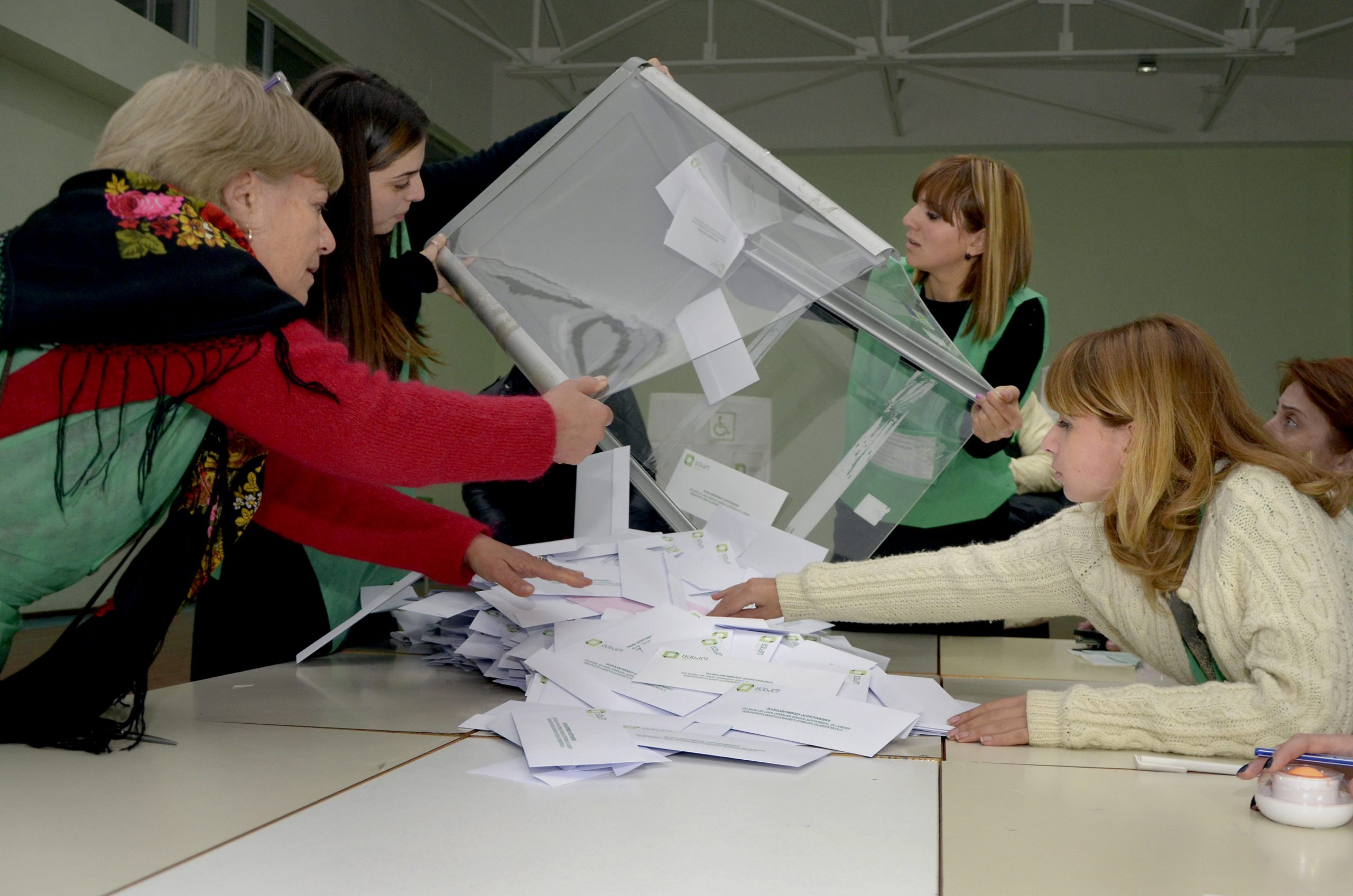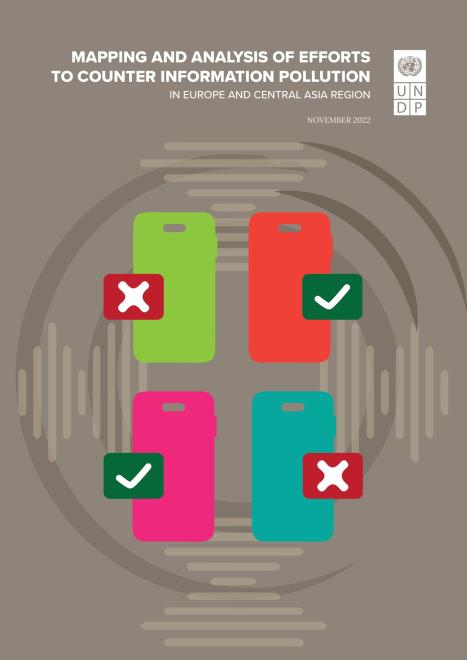
UNDP launches a mapping and analysis of efforts to counter information pollution in Europe and Central Asia
To raise awareness and understanding of information pollution as an important contributory factor to the growing security threats and development challenges in the Europe and Central Asia region, UNDP’s Istanbul Regional Hub in collaboration with UNDP’s Oslo Governance Center prepared a regional mapping and analysis report which will inform coherent and effective responses by learning from best practices implemented by various actors.
The report “Mapping and Analysis of Efforts to Counter Information Pollution in Europe and Central Asia Region” examines the impact of information pollution on social cohesion, democratic processes and institutions in the Europe and Central Asia region. It offers examples of successful responses to information pollution implemented by various actors, such as government-led and independent responses.
The report identifies disinformation trends including political disinformation during elections and crisis-driven disinformation. In its recommendations, it emphasizes the need for fact-checking and media literacy programs to combat misinformation during election periods. The report also highlights the role of social media platforms in addressing election-related misinformation, urging them to be vigilant during times of heightened tensions and potentially divisive elections and conflicts. The report stresses the significance of developing effective responses to counter election-related misinformation, as it undermines democratic processes and institutions, eroding trust in the social contract.
For more information and the report: Mapping and Analysis of Efforts to Counter Information Pollution in Europe and Central Asia Region | United Nations Development Programme (undp.org)

-
05 Jun 2023Building online and offline communities and a shared agenda for the future with Zureyka Escalanate.
-
05 Jun 2023Integrating public digital solutions through government-civil society partnerships with Yurii Romashko
-
05 Jun 2023Increasing digital safety online while promoting Human Rights with Mohammad Eddabe.
-
05 Jun 2023Harnessing the power of AI through inclusion with Lei Motilla
-
05 Jun 2023Ensuring that benefits of digital technologies are evenly distributed across gender, class, and location with Wevyn Muganda.